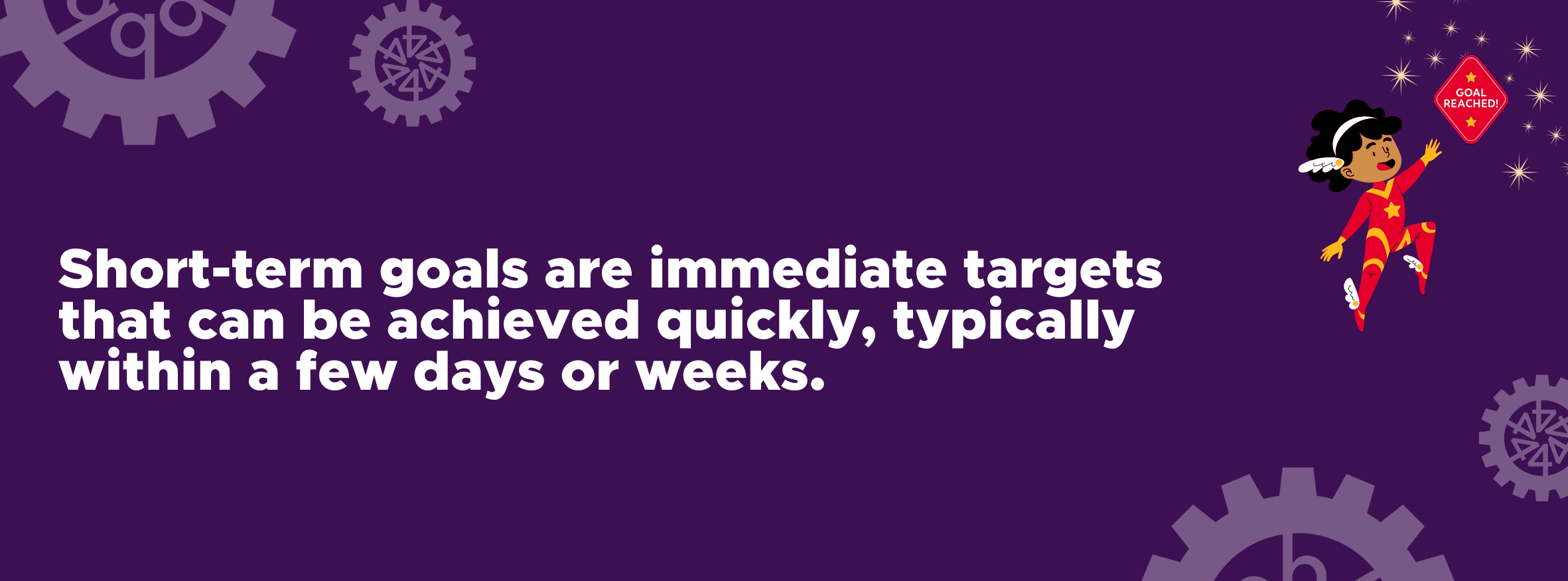Effective Tips for Helping Children Set and Achieve Their Goals

As parents, one of the most valuable skills we can impart to our children is the ability to set and achieve goals. Goal-setting helps children stay focused, motivated, and gives them a sense of purpose. It teaches them important life skills such as perseverance, planning, and time management. But while setting goals is an essential part of success, many parents wonder how they can support their children through this process. The key is to make goal-setting a fun, engaging, and structured experience, one that will foster growth and a sense of achievement.
One of the first steps in helping your child set goals is understanding the different types of goals they may want to pursue. These could include personal goals, academic goals, extracurricular goals, short-term goals, and long-term goals. Each type serves a different purpose and will require different strategies. The following is a guide to help you assist your child in setting meaningful goals across these areas.

Personal Goals
Personal goals can be a fun and motivating way for your child to explore new interests and develop skills they enjoy. These goals might include things like making more friends, learning an instrument, spending more time outdoors, or getting better at their favourite game.
To help your child set these goals, encourage them to think about what excites them. Ask questions like, “What would you like to get better at?” or “What’s something fun you want to try?” Once they’ve chosen something, help them make the goal specific and achievable, like “practice soccer for 20 minutes every afternoon” or “learn a new song on the guitar.”
As your child works toward their goal, celebrate each small step along the way. Focusing on progress, not perfection, will keep them motivated and confident. These personal goals give your child the chance to enjoy the process of learning and improving while building a sense of accomplishment.
Academic Goals
Academic goals are a common focus for children, as school performance can have a big impact on their future opportunities. However, academic goals are not just about grades - they can also focus on building better study habits, time management skills, or mastering a difficult subject.
When your child sets academic goals, it’s important to align these goals with their interests and abilities. For example, if your child is interested in reading but struggles to complete assignments on time, a goal could be something like "read one book per month" or "complete all assignments by their due dates." If they are struggling in a particular subject, their goal might be to "improve my maths grade by the holidays" or "ask the teacher for help if I don’t understand something." For younger children, goals can be simpler and more focused on developing foundational skills, such as "pass my pen licence," "work on my spelling," or "learn a new word every day."
One of the key aspects of academic goal-setting is to make sure the goal is achievable. If your child has been struggling with a subject, aiming for dramatic improvements might feel overwhelming and could potentially lead to frustration. Instead, break down the goal into smaller steps. For instance, if the goal is to improve in maths, they could aim to improve their scores on homework first and gradually move on to achieving better grades on tests.
Additionally, helping your child stay organised and create a study plan can go a long way in ensuring they stay on track with their academic goals. Encourage them to set aside specific times for homework or review each week. Tracking progress is equally important. Celebrate the completion of assignments and improvements in their grades, no matter how small.
Extracurricular Goals
Extracurricular activities are essential for helping children develop well-rounded skills outside of the classroom. Whether it’s sports, music, art, or community service, extracurricular activities allow children to explore their interests, make new friends, and build skills that are important later in life. Setting goals in this area can help your child stay motivated and engaged in their activities.
For example, if your child plays an instrument, they might set the goal of "learning a new song every month" or "improving my technique on the piano." If they participate in sports, they may aim to "improve my sprinting time by 5 seconds" or "attend all practices for the next season."
The key to setting successful extracurricular goals is balance. It’s easy for children to get overwhelmed when they commit to too many activities. Help your child prioritise their extracurricular interests and set realistic, enjoyable goals. It’s equally important to ensure they have time for other important aspects of their life, such as family time, homework, and relaxation. A well-balanced schedule will help them avoid burnout and enjoy the experience more fully.
Additionally, goal-setting in extracurricular activities should be flexible and encouraging. Children should feel motivated to improve, but not pressured to perform perfectly. If they have a setback, encourage them to see it as an opportunity to learn, rather than a failure.

Short-Term Goals
Short-term goals are immediate targets that can be achieved quickly, typically within a few days or weeks. These goals are ideal for boosting your child’s motivation and providing a sense of accomplishment. Short-term goals also help children practice how to break down larger tasks into smaller, manageable pieces.
For instance, your child might set a goal of "cleaning my room by Saturday" or "finishing my science project by Friday." These goals are concrete, achievable, and offer a clear deadline, which can help children stay focused.
Setting short-term goals is an effective way to build momentum and create a sense of progress. It’s important to reward your child when they meet these goals, whether it’s with a treat, an extra hour of screen time, or a fun activity. The key is to ensure that the rewards are in line with the goal and make the experience positive.
Long-Term Goals
Long-term goals are big ambitions that require time and effort to achieve, such as landing a role in the school musical, getting better at a sport, or saving for something special. Although these goals can seem daunting, breaking them down into smaller, manageable steps makes them much more achievable.
For example, if your child wants to join the school choir, they could start by practising songs at home or building confidence by singing in front of family. If their goal is to become a better swimmer, they might focus on attending lessons or swimming an extra lap each week. Other goals, like building a treehouse or getting better at a game, can be broken into tasks like gathering materials or practising daily.
Tracking progress is key - celebrate each small success along the way to keep your child motivated and remind them that their hard work is paying off. Long-term goals are about learning, growing, and enjoying the journey, not just the end result.
Conclusion
In helping your child set and achieve goals, you are equipping them with the tools they need to succeed in life. Through the process of goal-setting, children learn to take responsibility for their actions, develop their strengths, and overcome challenges.
At NumberWorks'nWords, we can help your child set and achieve their academic goals by providing personalised support that ensures they stay on track with their learning while enjoying the process. Our goal-setting approach is designed to build confidence and focus, helping children make steady progress. The skills they develop in our centres will not only benefit their academic growth but also translate into other areas of goal setting, both in and outside of the classroom. Contact us today to organise a FREE no-obligation learning assessment for your child.




